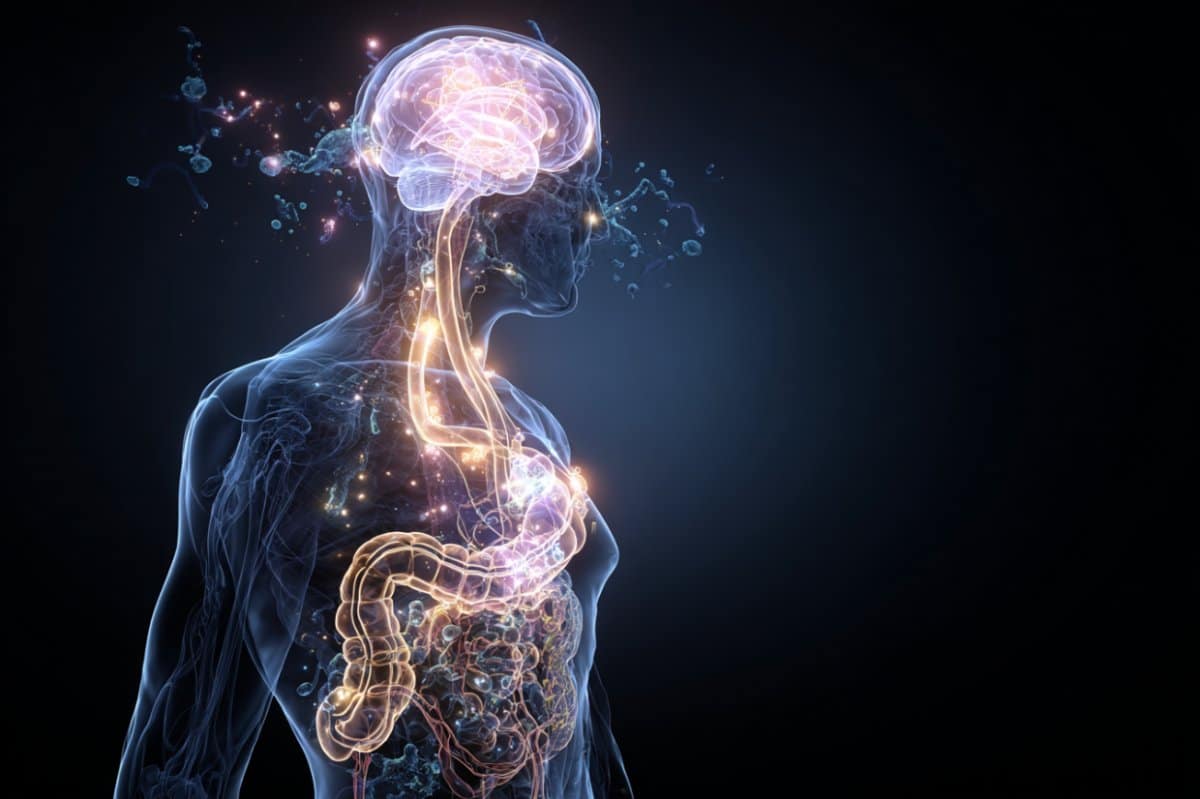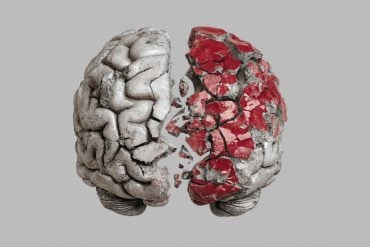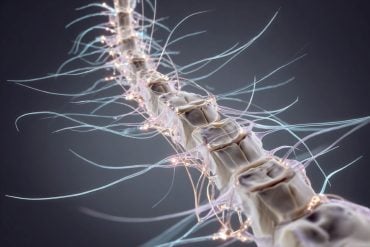Summary: A new review has examined how bipolar disorder medications interact with the gut microbiome, revealing important links between treatment response and gut microbial composition. Researchers analyzed 12 studies comparing the microbiomes of treated, untreated, and healthy individuals.
Patients who responded well to treatment tended to have gut profiles more similar to healthy individuals. The findings suggest a potential role for the gut-brain axis in determining the success of bipolar therapies and point to future possibilities for microbiome-informed personalized medicine.
Key Facts:
- Microbial Predictors: Patients who improved with treatment had gut microbiomes more similar to healthy individuals.
- Bidirectional Pathway: The gut-brain axis appears to influence both medication effects and mood regulation.
- Research Potential: Insights could lead to microbiome-based personalized treatment for bipolar disorder.
Source: Microbiology Society
A new review, published in Microbiology, is the first to systematically review the potential effects of psychotropics (the drugs used to treat bipolar disorder) on the gut microbiome of treated and untreated bipolar individuals.
Bipolar disorder is a mental health condition characterised by unpredictable mood shifts, including episodes of mania and depression.
Despite being one of the most common and debilitating mood disorders, affecting over 1% of the worldwide population, bipolar disorder is often misdiagnosed and undertreated.

A significant number of individuals with bipolar disorder do not respond adequately to drugs and previous studies have shown that the gut microbiome, which is the community of microbes and their surrounding environment (the gut), of patients with bipolar disorder are different to healthy individuals.
This may be due to the connection between the gut and the brain, known as the gut-brain axis, which is a two-way communication via chemical signals such as neurotransmitters and hormones.
Changes to the composition of the gut microbiome can affect the way that the brain is able to function. It also works the other way, and changes to the brain, like in bipolar disorder, can affect the abundance and composition of the gut microbiome.
Researchers from the University of Alberta, Canada, were interested in reviewing existing data to find out how bipolar medications can affect the gut microbiome, and therefore the brain, and whether the composition of the gut microbiome may change the way a patient responds to treatment.
Researchers collected data from 12 existing studies that analysed the effects of bipolar medications on the gut microbiome.
They included studies that looked at differences between the gut microbiome of adults diagnosed with bipolar disorder who were receiving medications and compared them either to before they began taking medication; unmedicated participants; or healthy controls.
The data collected suggests that there is a significant connection between the gut and brain in patients treated for bipolar disorder and that this affects the ways in which a patient responds to treatment.
Patients across multiple studies who responded to treatment (indicated by alleviated depression symptoms) had markedly different gut microbiome populations compared to those who did not respond.
In fact, these patients had gut microbiome profiles more alike to healthy individuals. In the future, this may help researchers predict how a patient will respond to treatment.
The gut-brain axis is a complex system which can be affected by multiple factors and further studies are needed to understand the cause and effect between the gut microbiome and the brain.
An Bui, lead author of the study from the Department of Psychiatry at the University of Alberta said, “We don’t know the direction in which this occurs, whether the drugs change the gut microbiome and this changes the way the brain functions, or whether the drugs change the way the brain functions which in turn, affects the gut microbiome”.
Researchers hope that the results of the study could pave the way for new personalised treatment strategies and inspire further studies looking at the molecular mechanisms of these pathways and clinical trials which focus on microbiome targeted treatments.
Dr Andrew Greenshaw, author on the study and Professor of Psychiatry and Neuroscience at the University of Alberta, Canada said:
“The review is important as it brings up more questions and suggestions for future research on how the gut microbiome affects bipolar treatment responses and vice versa.
“Also, since the research subject is still new, synthesizing such diverse results with heterogeneous experimental methodologies can be helpful in guiding researchers design new studies.”
About this psychopharmacology and microbiome research news
Author: Clare Baker
Source: Microbiology Society
Contact: Clare Baker – Microbiology Society
Image: The image is credited to Neuroscience News
Original Research: Open access.
“Pharmaco-psychiatry and gut microbiome: a systematic review of effects of psychotropic drugs for bipolar disorder” by An Bui et al. Microbiology
Abstract
Pharmaco-psychiatry and gut microbiome: a systematic review of effects of psychotropic drugs for bipolar disorder
Despite being one of the most common and debilitating mood disorders, bipolar disorder is often misdiagnosed and undertreated. Its pathogenesis is complex, with significant patient variability and inconsistent treatment effectiveness.
The brain-gut-microbiota axis plays a critical role in bipolar disorder by modulating neurotransmitter secretion, gut peptides and systemic inflammation.
However, the mechanisms by which psychotropic treatments influence gut microbiota composition and their implications for clinical outcomes remain poorly understood.
This systematic review evaluated the impact of psychotropic drugs on gut microbiota and their potential role in bipolar disorder treatment outcomes.
A comprehensive search across Ovid MEDLINE, Embase, APA PsycINFO, Scopus and PubMed yielded 314 articles, of which 12 met the inclusion criteria (last search: 13 August 2024).
The studies included were those on adults with bipolar disorder type I or II receiving psychopharmacological treatments; those with group comparisons (e.g. healthy controls vs. medicated vs. non-medicated) investigating gut microbiome changes; and no restrictions applied to psychotic features, comorbid anxiety or prior treatment responses.
Exclusions involved individual case reports, incomplete conference submissions or early terminated studies lacking efficacy analysis. Cochrane ROBINS-I V2 tool was used to measure the risk of bias, and the GRADE approach was utilized to rate the certainty of evidence in included studies.
Two authors independently extracted data into Excel spreadsheets, categorizing demographic and clinical characteristics, describing microbiome analytic methods and summarizing findings on gut microbiome changes post-treatment.
Given the high variability in methods and outcome measures across studies, all details were reported without data conversion.
Data synthesis reveals that psychotropic treatments, including quetiapine and lithium, influence gut microbiota by increasing the abundance of beneficial bacteria supporting gut health and pathogenic bacteria linked to metabolic dysfunction.
Notably, female patients exhibited more significant changes in microbial diversity following psychotropic treatment.
Additionally, patients treated with psychotropics showed an increased prevalence of gut bacteria associated with multidrug antibiotic resistance. In bipolar patients treated with quetiapine, responders – those experiencing improved depressive symptom scores – displayed distinct gut microbiome profiles more closely resembling those of healthy individuals compared with non-responders.
Responders also exhibited neural connectivity patterns similar to healthy subjects.
These findings underscore the complex dual impact of psychotropic medications on gut microbiota, with potential consequences for both gut and mental health.
While the enrichment of beneficial bacteria may support gut health, the rise in antibiotic-resistant and metabolically disruptive bacteria is concerning.
Study limitations include methodological heterogeneity, inclusions of other psychiatric disorders, a high risk of bias in some studies due to incomplete statistical analyses or insufficient control for confounding factors and potential duplication of study populations arising from overlapping authorship.
Further research is essential to elucidate the functional consequences of these microbial shifts and their influence on treatment efficacy.
Nevertheless, this review highlights the potential of utilizing gut microbiota profiles to inform personalized treatment strategies, optimize therapeutic outcomes and minimize side effects in bipolar disorder.






